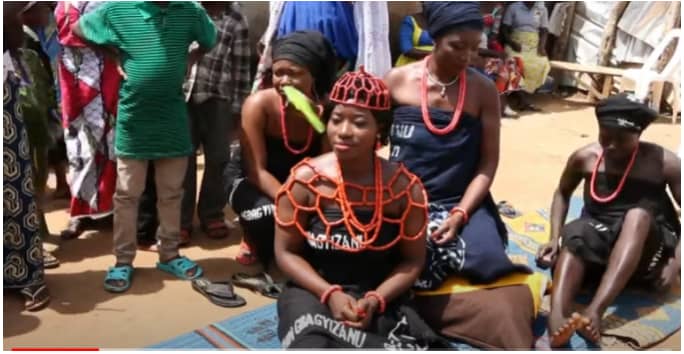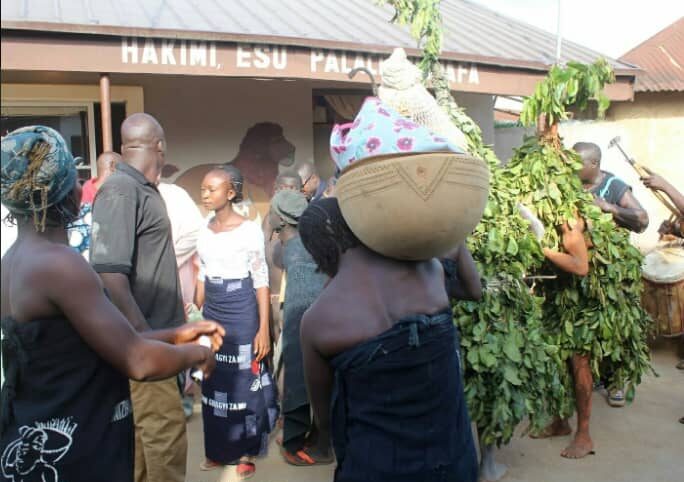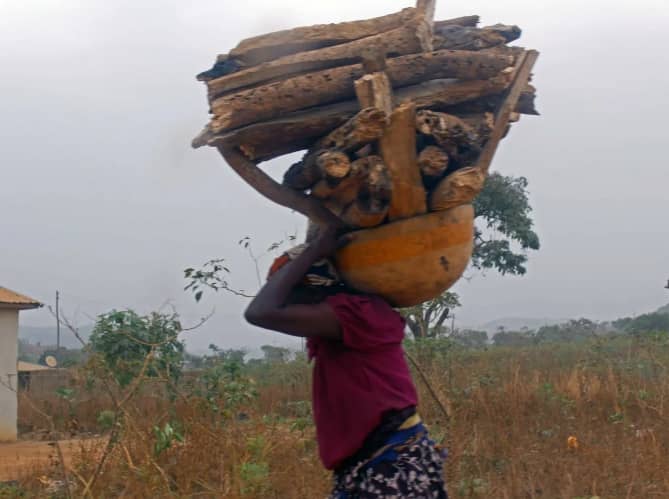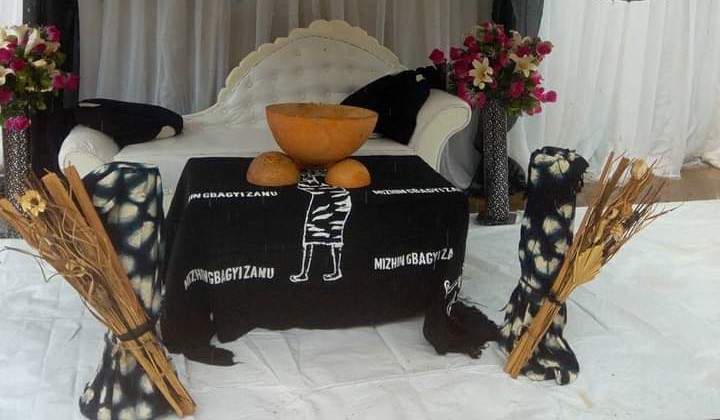‘’Zukumpa is a local Gbagyi spoon used for eating Ejieh, a Gbagyi kind of special meal served at weddings. This is a ‘must’ on the marriage list.
Michael Tatari Yahana was excited to tell me the activities that took place on the day he married Hussaina, his wife. As he told me about the Aguguma dance, Micheal stood up and practically did the dance steps. At this, I laughed and all the other people around joined me to laugh at Michael’s entertainment abilities. He had obviously not forgotten the dance he did at his own wedding more than two years ago.
In Gbagyi culture, two young people intending to marry must beware that they keep chaste, if not, face the repercussions of getting pregnant before the traditional marriage rites. For If they are not careful and the girl gets pregnant, the marriage is going to cost them more.

There would be two lists that the man will be given. And the first list, which will carry the most expensive things will be for the cleansing ritual of the bride’s family household because she got pregnant out of wedlock. But if she is not pregnant before this day, there would only be one list.
Jacob Titus was given only one list. Titus laughed out loud, and told me, ‘’ ahhh! Only one list now!.” He and his wife had kept the discipline and so, their marriage was less difficult. Titus however, lamented that, ‘’kai, it wasn’t easy o’’. He had to buy 5 ‘Ecolac’ boxes and fill them all up with wrappers. But Titus quickly added, ‘’ but when your wife come begin to use the wrappers to shine, you will be happy o.”
So, it is part of Gbagyi culture, like many other cultures in the north that an intending groom must present boxes filled with clothes, bras, panties and jewelry, including make-up kits and shoes for the woman he is marrying. It is expected that he and his lady would agree on the types of wrappers that he would buy. And depending on the financial strength of the man and the taste of the lady, some men would buy two each of every wrapper name she calls.
Ajesenda
Apart from these boxes, there are other items of necessity that make up the marriage list. Quite notable is the Ajesenda, the traditional attire of the Gbagyi. This, the husband must present on the day of the traditional wedding. He is also required to bring a ram, big chicken, a bottle of honey, palm oil, salt, some farming implements like herbicides and assorted drinks.
When Lami (she wouldn’t tell me her husband’s name, but just giggled when I insisted) was getting married, her husband had to go work on the farm for her father for two to three days. This requirement is meant to test how deep a man’s love is for his intending bride. Lami’s husband did the farm work with ease. Her brothers were also given money for goodwill by her husband.

Gbagyi women are known for their unique culture of carrying loads on their backs. And one would think this is a tradition that may just be on its way out in this 21st century. But wrong! The culture is being maintained in the marriage institution among the Gbagyi. The Kabwai (big Calabash) has to be one of the goods of value that a Gbagyi girl getting married must take to her husband’s house. She will need it to carry firewood back home from the farm. So, she is presented with a Kabwai and an axe for fetching firewood.
Bride price in Gbagyi culture used to be easy, whereby a man was asked to pay as little as N50, depending on his financial strength. But now, with the changes in the economy, bride price ranges between N35- N1, 000,000, depending on who is asking and who is giving.
When all the requirements are fulfilled, it is now time for the Apyedai, friends of the bride, to take her to her husband’s house. One, two or three Apyedai would stay with the bride for two weeks in her husband’s home. During this period, their duty would include helping her to unpack her marriage boxes and other goods and arrange her room, and also setting up her kitchen and cooking.
Firewood

When speaking to this group of men and this lady for this story, I got curious about why Gbagyi women keep a lot of firewood. James John was quick to interject the discussion with the explanation of how firewood is the source of riches for the Gbagyi woman. She is able to use her own firewood for cooking without having to beg her neighbor. And also, her own heap of firewood can bring her money anytime she decides to see it for money. So, every young Gbagyi woman is trained to gather firewood in heaps. It is a thing of pride also.









